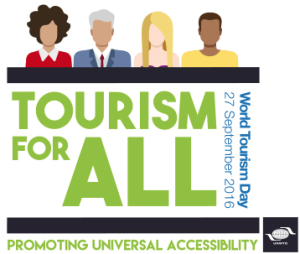 What is tourism for economic or community development? What does it look like? Tourism for development is when local people in regions experiencing poverty and/or high-unemployment become employed in the tourism industry, opening and operating hotels, resorts, campgrounds, outfitters, photography safaris, white water rafting and other nature-based recreational activities and accommodation. It’s also when local people are employed to maintain national parks and recreation areas. It’s probably my favorite form of economic development, whether in a “third world” or transitional country or an overlooked region of the USA, because it has so many qualities: it’s sustainable, it promotes the preservation of natural spaces, it encourages multi-cultural learning and understanding, and it promotes getting people outdoors, experiencing natural spaces, something that I enjoy and want all people, especially women, to enjoy.
What is tourism for economic or community development? What does it look like? Tourism for development is when local people in regions experiencing poverty and/or high-unemployment become employed in the tourism industry, opening and operating hotels, resorts, campgrounds, outfitters, photography safaris, white water rafting and other nature-based recreational activities and accommodation. It’s also when local people are employed to maintain national parks and recreation areas. It’s probably my favorite form of economic development, whether in a “third world” or transitional country or an overlooked region of the USA, because it has so many qualities: it’s sustainable, it promotes the preservation of natural spaces, it encourages multi-cultural learning and understanding, and it promotes getting people outdoors, experiencing natural spaces, something that I enjoy and want all people, especially women, to enjoy.
That’s why stories like this excite me:
“When I was eighteen, a large group of students visited Ghana from the UK for a youth development program. It was an expensive program. It cost thousands of pounds. But I got to join for free because they needed some Ghanaians for a smattering of cultural diversity. The program was a mixture of community service and adventure. We actually came canoeing on this very lake. The whole time I was thinking about how much money was being made from our natural resources. And how much of that money was leaving Ghana. I became determined to make Ghana money out of the Ghana environment. So after graduating college, I set out to build a world-class adventure company. It’s been over five years now. We have twelve full time employees and twenty-five adventure locations. Best of all, I think we’re creating an adventure culture in the country. Our clients were 70 percent foreign when we started. Now they’re 80 percent Ghanaian. Behind me is Survival Island. It’s my latest project and biggest risk yet. I constructed a full ropes course, and one day I hope to build the world’s longest zip line. That would really put Ghana on the adventure map.”
And so Bravehearts Expeditions was born, according to an account by a person profiled Humans of New York, a Facebook page that usually profiles individuals in New York, in their own words, but sometimes goes to other countries and was recently in Ghana. Often, the results of their profiles lead to hundreds, even thousands of people donating to individuals and NGOs. This happened again with this profile of Ghanaian adventure company, which commented on their story, “Thank you immeasurable for telling our story so succinctly. In just seconds we have been overwhelmed by the messages of support and offers of professional assistance by loving readers across the world. ”
Also see:
- My favorite resources regarding tourism for community & economic development
- Advice for Hotels, Hostels & Campgrounds in Transitional & Developing Countries: The Qualities of Great, Cheap Accommodations



